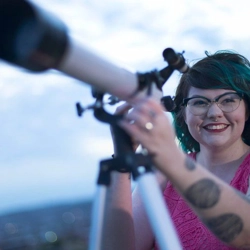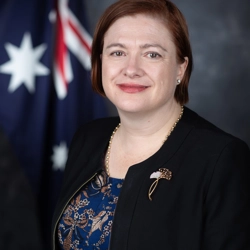Physicists explore the fundamental principles that govern the natural world through experiments, observations and theoretical analysis. They conduct research in various fields, such as quantum mechanics, relativity and condensed matter physics, often working in laboratories, universities or research institutions. Physicists use mathematical models and sophisticated equipment to develop new technologies, solve practical problems and advance scientific knowledge. Their work can lead to innovations in areas such as energy, materials science and medical technology, making a significant impact on both theoretical understanding and practical applications.
Astronomers study celestial objects and phenomena, such as stars, planets, galaxies and black holes, to understand the universe's origins and behaviour. They use telescopes and other instruments to collect and analyse data, often working in observatories, research institutions or universities. Their work helps to expand our understanding of the cosmos and can lead to discoveries that impact other fields, such as physics and space exploration.
Learning areas/subjects
You may be interested in this occupation group if you enjoyed these learning areas at school:
- Physics
- Biology
- Chemistry
- Environmental sciences
- Geography
- Maths
Skills
- Problem-solving
- Scientific

Other Natural and Physical Science Professionals
Other Natural and Physical Science Professionals include Conservators, Metallurgists, Astronomers, Meteorologists, Physicists and Exercise Physiologists.
FIND OUT MORE
University Lecturers and Tutors
University Lecturers and Tutors prepare and deliver lectures and conduct tutorials in one or more subjects within a prescribed course of study at a university and conduct research in a particular field of knowledge.
FIND OUT MORE
Other Engineering Professionals
Other Engineering Professionals include Aeronautical Engineers, Agricultural Engineers, Biomedical Engineers, Engineering Technologists, Environmental Engineers and Naval Architects.
FIND OUT MOREHear from women in physics and astronomy

"I find it’s really helpful to remember WHY you want to do what you want to do. Why do you love science? Why do you want to achieve that particular goal? If you remember the ‘why’, that will motivate you to keep going and smashing those challenges!"
Science Communicator and extraordinary Astrophysicist

"… anybody can achieve a career in STEM, everyone has the right to equal opportunities, including young women, including young Aboriginal and Torres Strait Islander people."
Astronomer

"You don’t have to be Einstein’s cousin to do science subjects. All you need is a knack for asking questions, thinking about how to solve problems, and perseverance. That’s the same for any job really – stick with it and you will get there. "
Australia’s Chief Scientist

"What’s interesting is the idea of creating knowledge between the existing discipline ‘silos’ — and creating new tools and technologies out of that knowledge."
Physicist
SKA: The world's largest radio telescope observatory
The SKA is a global project to build the world’s largest and most capable radio telescopes.
Construction on the Australian component of the world’s largest radio telescope observatory, the SKA-Low telescope, is starting on Wajarri Yamaji Country in remote Western Australia.
Professor Lisa Harvey-Smith shares insights into her career and work as an astronomer on the SKA project.
Teachers note: Explore the Stargazing with the SKA lesson plans developed by AAMT.
Meet Michelle Simmons AO: Australian of the Year 2018 and recipient of the 2023 Prime Minister's Prize for Science
Professor Michelle Simmons is one of the world’s top scientists and currently on the biggest scientific mission of her life – building a quantum computer.
Find out about how her team's incredible work is making Australia a world leader in quantum computing.
Learn more about out her incredible achievements in this poster.